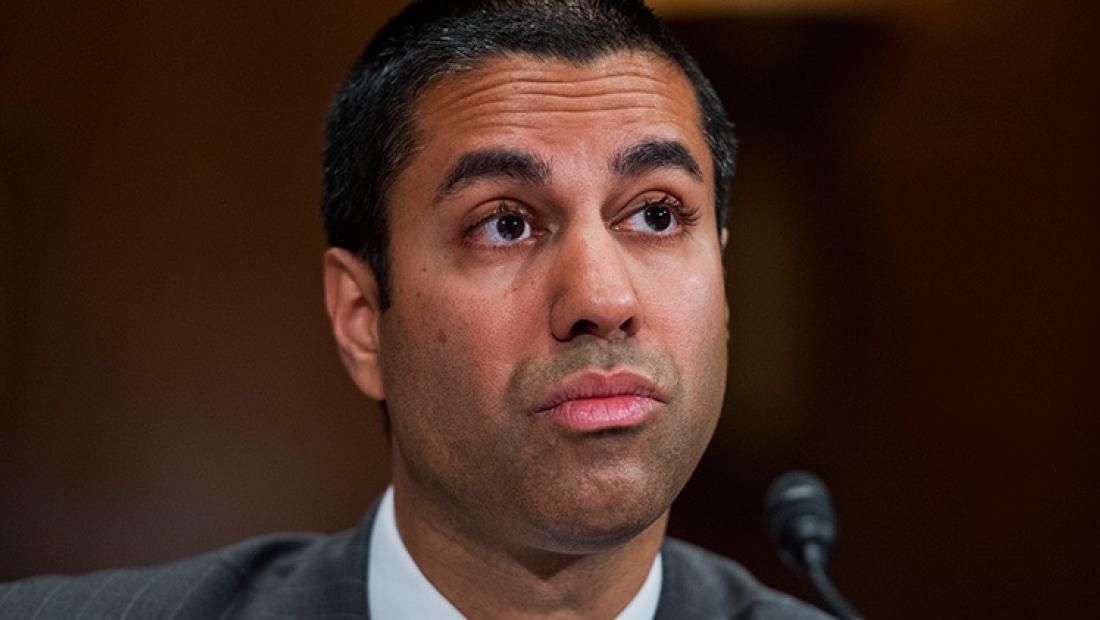Pai: FCC Can't Pull Licenses Over Newscast Content

The smarter way to stay on top of broadcasting and cable industry. Sign up below
You are now subscribed
Your newsletter sign-up was successful
FCC Chairman Ajit Pai says that "under the law, the FCC doesn't have the authority to revoke a license of a broadcast station based on the content of a particular newscast."
That was at a Mercatus Center/AT&T event in Washington Tuesday (Oct. 17) on The Future of Telecom Law, the chairman's first public appearance since the President's tweeted threats to news outlets prompted calls for his repudiation of them, as event organizers were pointing out in promoting he appearance.
The chairman was asked about the President's tweets, and said that he was reiterating his long-stated support for the First Amendment. "I have said for many years at the FCC that I believe in the First Amendment and under my leadership will stand for the First Amendment."
Asked whether there was any role, "statutorily or morally" in the deciding what was "fake news" and doing something about it, Pai said: "Traditionally that has not been within the FCC's jurisdiction. I tend to be a lawyer by training and hew as closely as I can to the terms of the Communications Act and other applicable legal principles," he said, "so that is the standard that we adopt, at least going forward."
It was initially unclear whether that would be enough to satisfy the Democrats pushing him to directly repudiate the President's comments, but it became clearer as critics began weighing in to say it wasn't. They will have a chance to ask the chairman themselves at a House FCC oversight hearing next week.
"Commissioner Pai's statement is a profile in cowardice," said public Interest lawyer Andrew Schwartzman. "Unlike his predecessors, who have forthrightly stood up to Presidential interference, he continues to equivocate. He needs to say that President Trump has no right to interfere in the FCC's licensing process and he will ignore the President's pressuure."
In an interview following a speech to the Media Institute Tuesday (Oct. 17), Democratic commissioner Mignon Clyburn said she accepted the chairman's statement. "we are an independent agency," she said. "This Commission will not intervene because it conflicts with the First Amendment."
Pai was asked about the Fairness Doctrine, which he vigorously opposed and which used to require stations to air opposing viewpoints on controversial topics.
He said the FCC learned a couple of things from that era. One was that it was an "affront to the First Amendment to have the government micromanaging how much time a particular broadcast outlet decided to devote to a particular topic," plus he added it was an administrative nightmare logging how much time a broadcaster devoted to one topic versus another.
The doctrine was repudiated by the FCC in the 1980's, which led to the rise of conservative talk radio like that practiced by Rush Limbaugh and Vice President Mike Pence. But the doctrine hung around on the books until this century, and its potential return was occasionally invoked by Democrats as a weapon against talk radio.
Gary Arlen contributed to this report.
The smarter way to stay on top of broadcasting and cable industry. Sign up below
Contributing editor John Eggerton has been an editor and/or writer on media regulation, legislation and policy for over four decades, including covering the FCC, FTC, Congress, the major media trade associations, and the federal courts. In addition to Multichannel News and Broadcasting + Cable, his work has appeared in Radio World, TV Technology, TV Fax, This Week in Consumer Electronics, Variety and the Encyclopedia Britannica.

